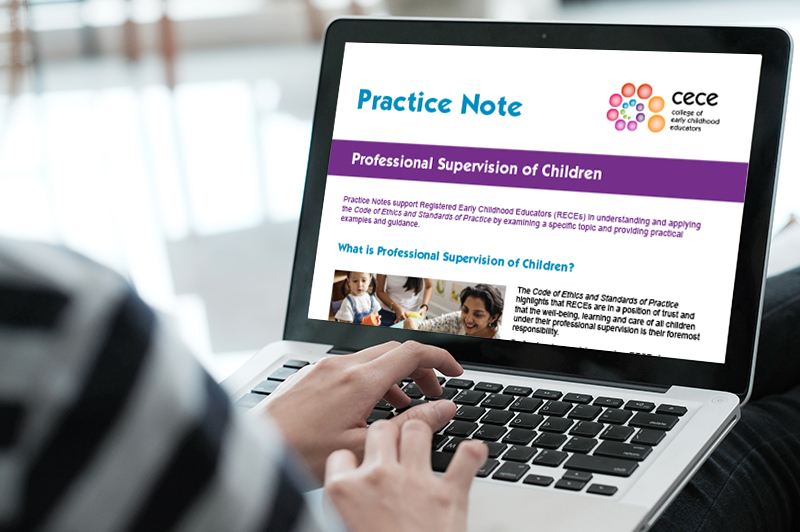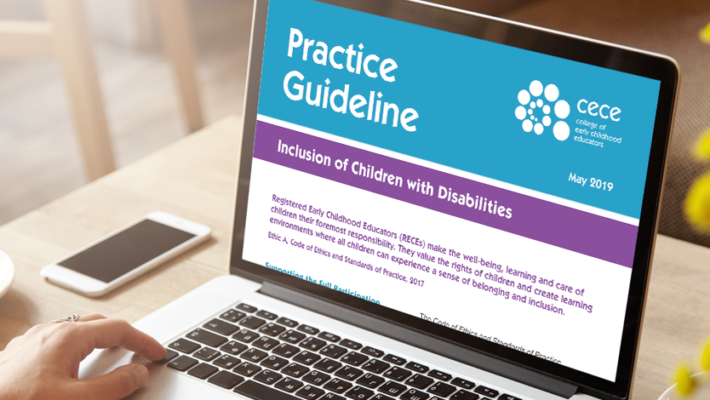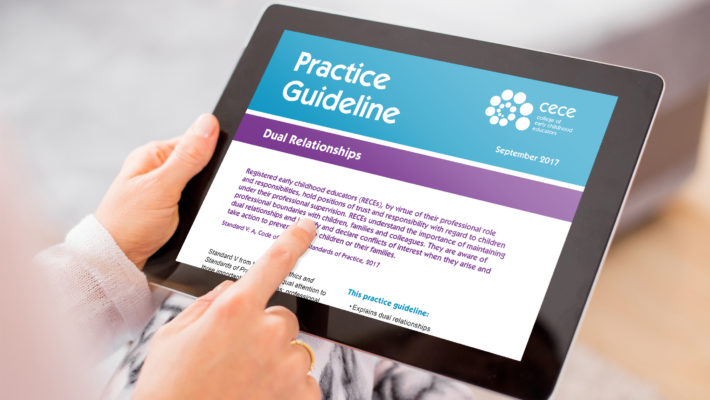The College recently published a new Practice Note on Professional Supervision of Children. Practice Notes support Registered Early Childhood Educators (RECEs) in understanding and applying the Code of Ethics and Standards of Practice. Each one examines a specific topic and provides practical examples and guidance.
What is Professional Supervision of Children?
Professional supervision requires RECEs to pay close attention to children, their environment and relevant details about children and their families. Many factors influence professional supervision. These factors are often connected and may impact each other.
Our new Practice Note: Professional Supervision of Children looks at five factors that inform professional supervision strategies and techniques.
1.Communication
Communicate openly and consistently with children, families and colleagues to acquire information and learn from past challenges with supervision of children.
2. Transition
Move in small groups that take into account children’s ages and capabilities, and conduct regular environment scans, attendance checks and head counts.
3. Physical Environment
Foster engaging environments that minimize potential hazards, such as small hideaways, damaged gates or furniture, or locked and unlocked doors.
4. Staff
Work with new staff to ensure they are familiar with routines, responsibilities and relevant information about children’s dispositions, medical needs, capabilities or interests.
5.Professional Knowledge
RECEs are expected to provide appropriate professional supervision, and know and understand the current practices, legislation, workplace policies and procedures that are relevant to the care of children. (Standard III: C.5 and Standard IV).
RECEs can use this resource for self-reflection, discussion with colleagues, or as an activity in their Continuous Professional Learning portfolio. All Practice Notes are available here.



